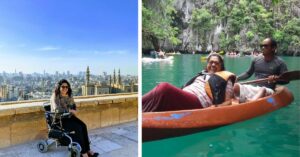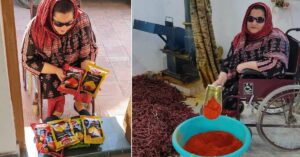‘No Doctor Could Diagnose My Disorder; Was 9 When I Started Pain Killers’
Sayomdeb Mukherjee has a rare genetic disorder called Dopamine-responsive dystonia (DRD) that was discovered 15 years after he was born. But that didn’t stop him from achieving his dreams.
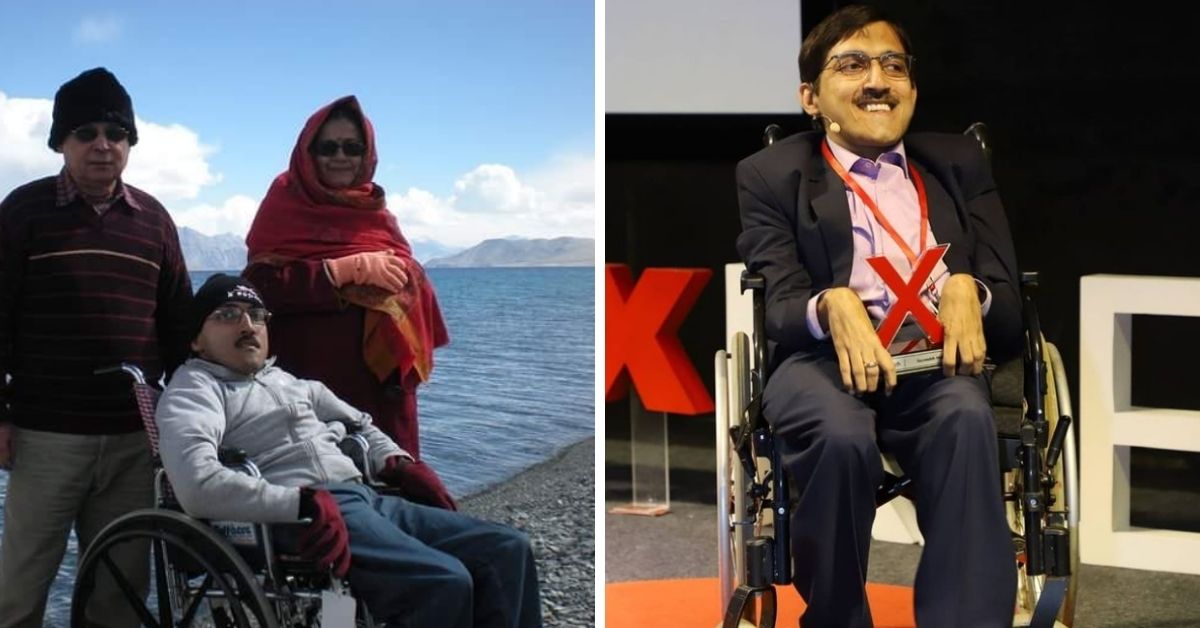
On his Ted Talk, Sayomdeb Mukherjee from Kolkata recalls an incident when he wanted to jump off Sikkim’s highest point but could not due to his condition. He felt worthless as he ‘couldn’t even die on his own’. Although he was on a holiday with his family, that day was perhaps Sayomdeb aka Den’s lowest point in life but not the only one when he wanted to end his agony.
Den was born with a rare genetic disorder called Dopamine-responsive dystonia (DRD) also known as Segawa syndrome (SS). It was at the age of five when he experienced involuntary muscle contractions and uncontrolled movements.
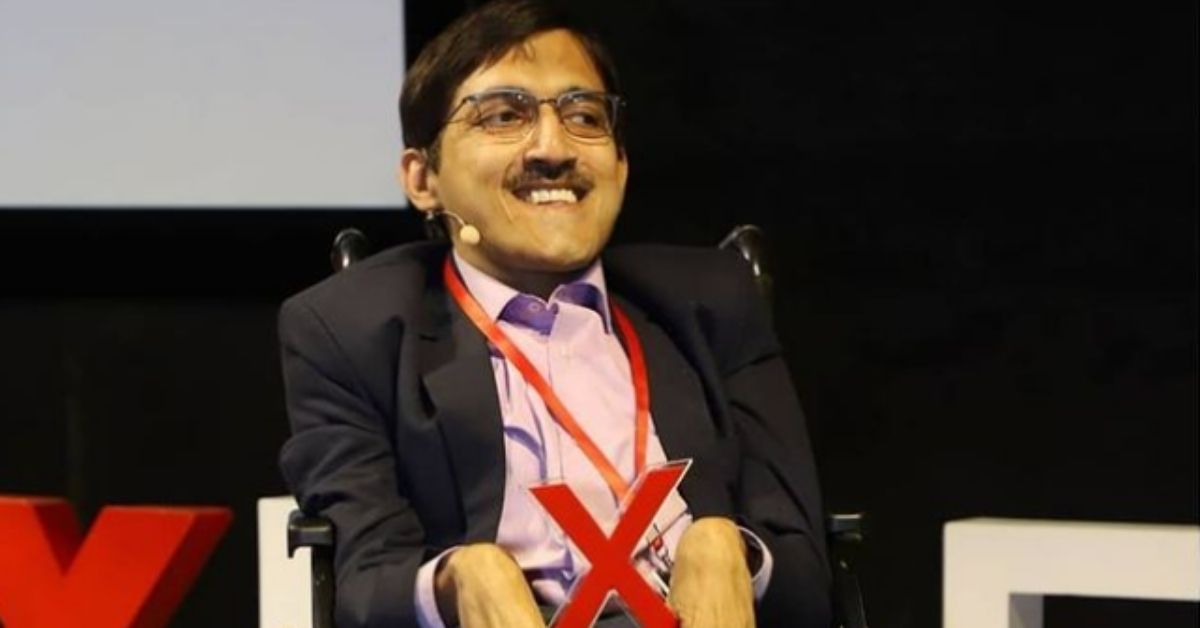
Till he turned 25, no doctor in India could identify or diagnose his condition. Based on his speech loss and absence of any bodily movement except for his right eyelid, he was given multiple medications to ease his pain. He was checked for cerebral palsy and muscular dystrophy.
Finally, he received the right diagnosis accidentally when one of his nephews based in the US had similar symptoms but since he was a toddler, he was able to recover within 24 hours of medications.
Den also took the same medication and found his voice and some bodily movements returned in a day.
While he was happy to talk again and experience less pain, wasting 25 precious years due to lack of knowledge and awareness seemed unfair.
Call it his spirits, faith or his desperation to make up for lost time, Den became an author, a radio jockey and an actor. He is presently employed with EnAble India, a non-profit working towards the dignity and financial freedom of the disabled.
Living With An Unknown Disorder
Den’s father, Dr Pabitradeb who was a doctor, did everything he could to ensure his child would walk and talk again. But Pabitradeb felt helpless on not getting a correct prognosis despite being the doctor. To ease Den’s pain he would use heavy sedatives, anti-allergic tablets and even painkillers.
“I was nine when I started having painkillers. If I am alive today, it is because of my parents. Doctors are surprised to know that I survived without dopamine supplements, tablets given for DRD, for so many years,” says Den.
With his stiff body moving or folding any body part was not an option. As the day progressed, his health deteriorated and by evening the pain got unbearable.
“All my limbs are paralysed. I have scoliosis and my curved spine would only make the pain worse. My physical pain would be tackled with the medications temporarily but no one or nothing prepares you for the mental agony. Seeing children of your age playing, going to school, and having a childhood without a wheelchair made me think about the purpose of living several times,” he says.
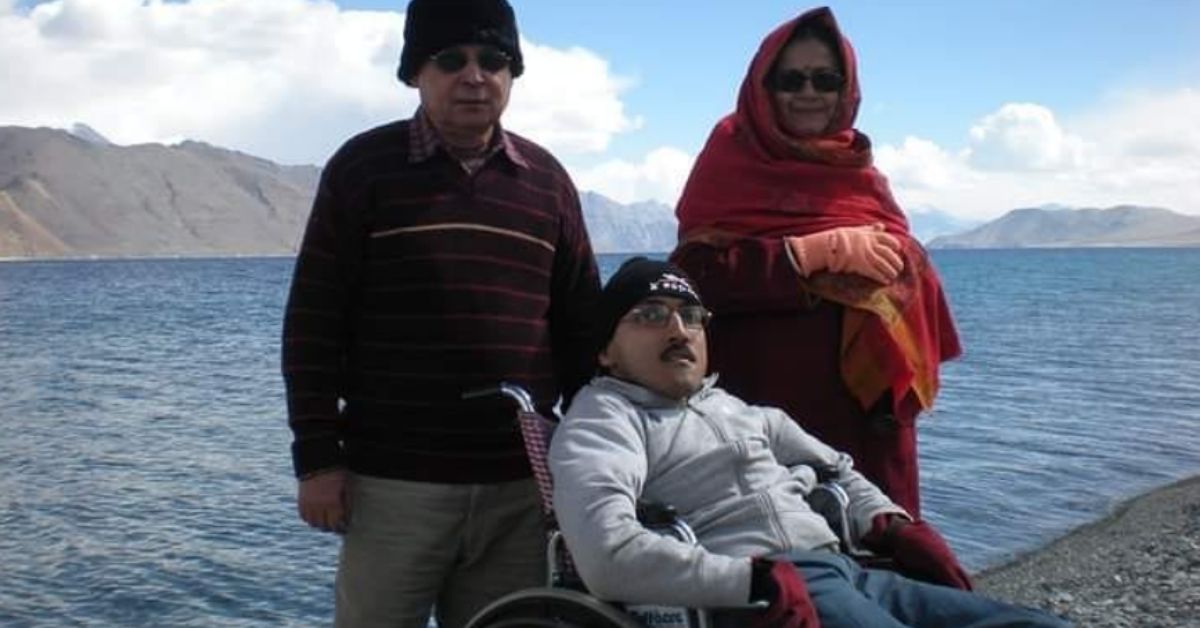
His body did not make enough dopamine, an enzyme that helps transmit messages between nerve cells. Without dopamine neurons could not transfer information to the brain and communication between different brain centres did not happen. He was able to listen and comprehend but the motor and speech centre did not work.
“With only my right eyelid working, having conversations was challenging. We would do basic communication with a yes and no. If I blinked it was a yes and making a sound meant no. My parents got me the speech-generating device that Stephen Hawking used to communicate. We even used a keyboard to form sentences,” he says.
Finding purpose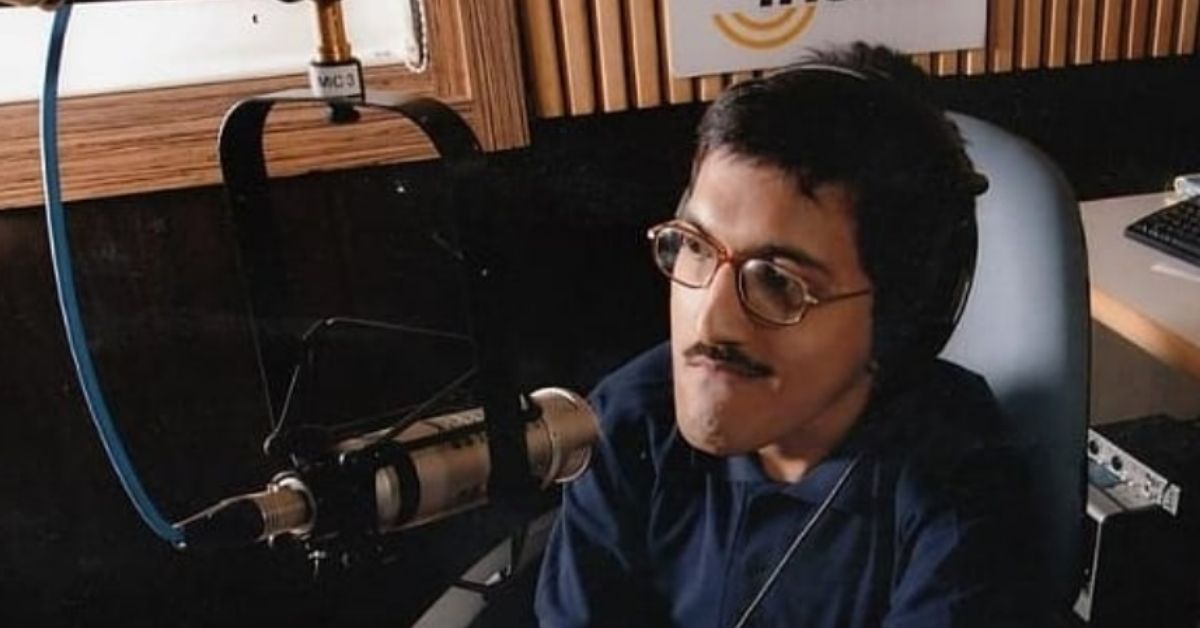
DRD was first discovered by Dr Segawa from Japan between 1995 and 2005. Den was diagnosed by the doctor treating his nephew.
“When we finally identified it, we were reluctant to try the medications as so far nothing had helped. Every time we pinned our hopes on a development we were disappointed. We prayed for a miracle and it worked. My condition improved significantly. My muscles relaxed, the stiffness reduced and body pains lessened,” he adds.
Den and his family accepted the fact that now he could talk. Adapting to the new situation took time and he found himself with no purpose.
He channelled all his anger and frustration towards writing and wrote several “trash articles and stories” for nearly two years. Seeing his writing, his mentor at the Indian Institute of Cerebral Palsy (IICP) in Kolkata, where he did his schooling, allowed him to do a presentation at a national conference when he was 20.
“I wrote and presented a paper on rights and responsibilities of a disabled. I wanted people to know that I was not asking for rights without any responsibilities as that would mean charity, which I did not want. For nearly five years I travelled in and outside India talking about the same topic,” he says.
Alongside this, he completed his certified education (12th boards) through the National Institute of Open Schooling (NIOS).
Although he finished his schooling, Den always believed that knowledge was more important than education. After all, it was through his parents he learnt the basics of physics, biology, physiology and even Greek mythology.
“The national conference gave me a lot of exposure so I continued presenting in various conferences. Eventually, I started with the media wing of IICP. It was while working here that I ended up at the radio station,” he says.
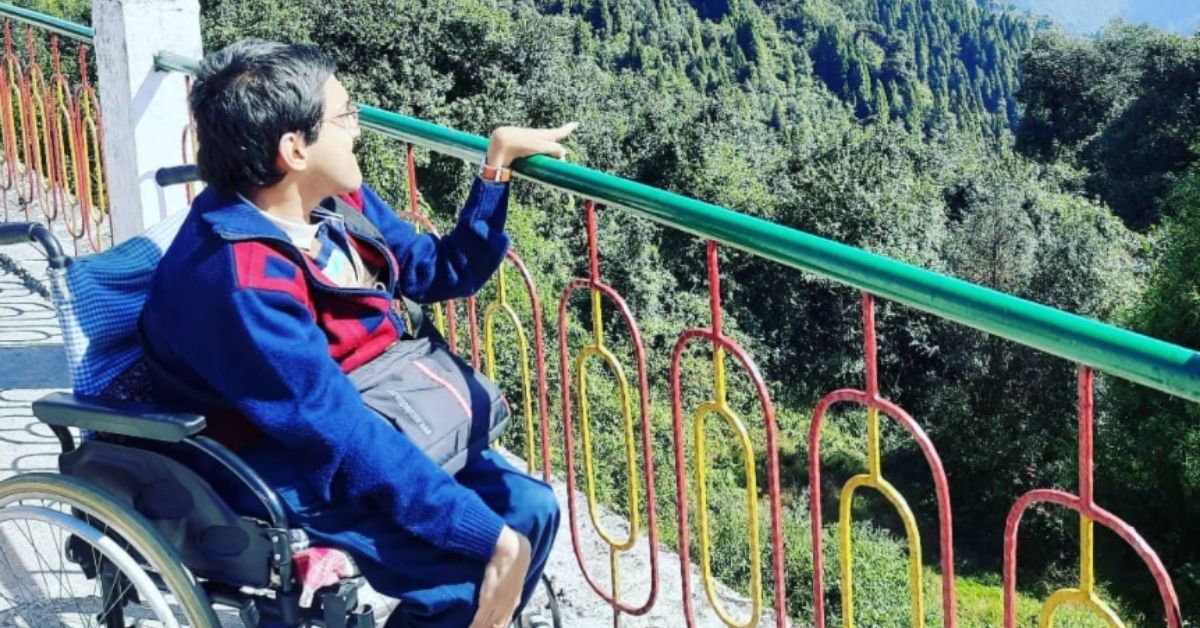
Joydeep Banerjee, the then Station Programming Head of 91.9 Friends FM, offered Den his show ‘Haal Chhero Nah Bondhu’ (Never Give Up – Dear Friend)’ in 2011. He was awarded the Radio Excellence Award and Best Bengali Radio Jockey
“I had no experience of speaking in front of a mic and every time I went to the show, it felt like it was my last. But I have done some 820 shows in five years,” he says.
Post his show, he wrote two books — ‘52 Steps’ on his radio experience and ‘Memoirs of Time’, his autobiography.
In 2015, he got an opportunity to act in a movie directed by Rupam Sarmah. The movie ‘One Little Finger’ (2019) had around 80 disabled actors. Den played the lead character of an RJ. The movie premiered at Cannes and won 33 awards in different festivals. He also won the best actor award at the Cincinnati film festival.
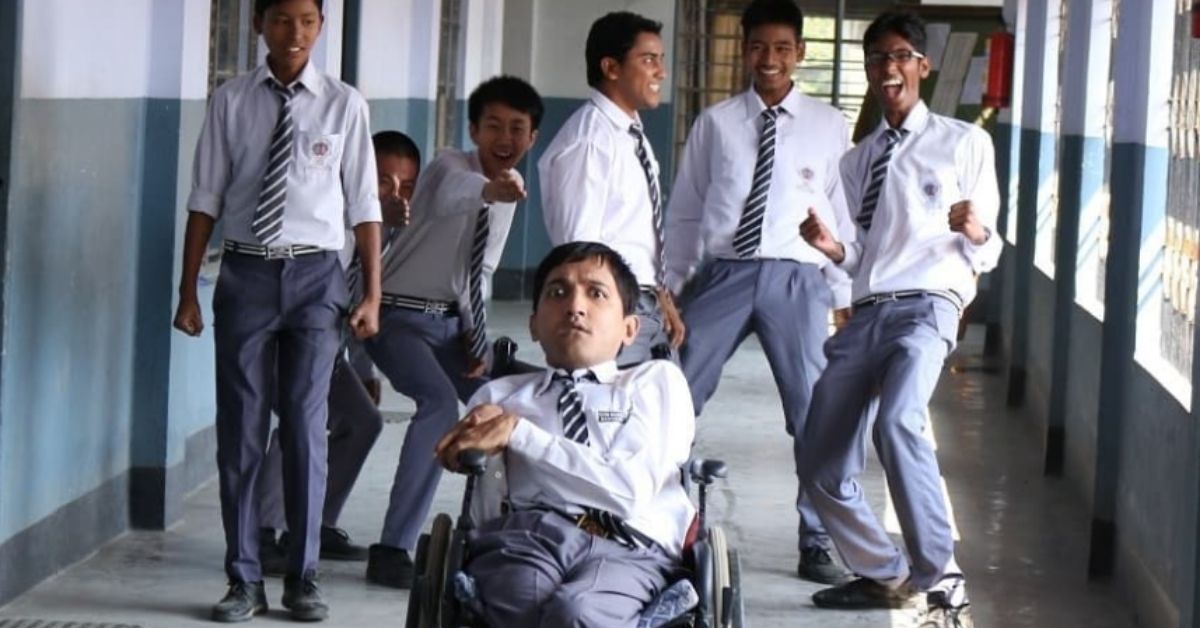
After leaving his mark in the creative field, Den moved to Bengaluru to work with EnAble in 2019.
“I realised I had very little money left after publishing the books, acting in the movie and doing a radio show so I applied for a stable job at 14 places and all of them rejected me due to my disability. I finally got a job at the NGO. At every stage of my life, I have set targets and the heights to achieve them to increase my productivity. This helped me a lot as even today the awareness around DRD is very little. Through my work I want to build a more inclusive society,” he adds.
Sources:
Edited by Yoshita Rao
This story made me
- 97
- 121
- 89
- 167
Tell Us More
We bring stories straight from the heart of India, to inspire millions and create a wave of impact. Our positive movement is growing bigger everyday, and we would love for you to join it.
Please contribute whatever you can, every little penny helps our team in bringing you more stories that support dreams and spread hope.







